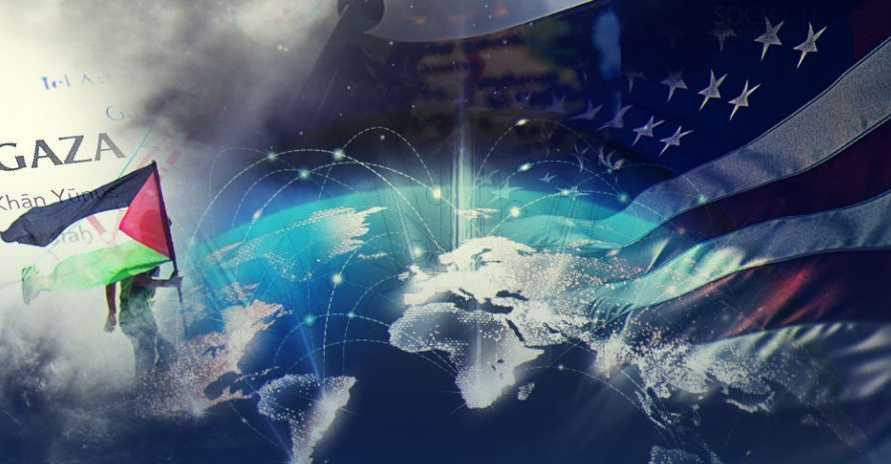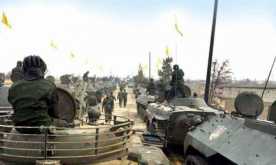

ديفيد هيل و"التكيف مع الحقائق الجديدة"
المركزية _ كتب ديفيد هيل في "this is Beirut" مقالا تحت عنوان: "التكيف مع الحقائق الجديدة"، جاء فيه: "مِن أصعب الأمور في الشؤون الخارجية، كما في الحياة، هو التعامل مع الحقائق الجديدة. ويستلزم فن الحكم الناجح تحديد حقائق جديدة وتجهيز السياسات اللازمة لحماية المصالح الوطنية وتعزيزها في ضوء ذلك. إن عدم القدرة على تعديل الاستراتيجيات في مواجهة الحقائق الجديدة يعد مؤشراً على الفشل الوشيك.
وتشكل المأساة التي عاشها الإسرائيليون والفلسطينيون منذ السابع من أكتوبر/تشرين الأول اختباراً كلاسيكياً في هذا الصدد للولايات المتحدة وشركائها في إسرائيل، والعالم العربي، وأوروبا. ورغم أن من السابق لأوانه توزيع بطاقات الأداء، فإن حقيقة أن بعض القادة يلجأون إلى نماذج الماضي غير الناجحة لا توحي بالثقة. فكيف يمكنهم استعادة الاستقرار وإيجاد طريق للسلام باستخدام مفاهيم لم تنجح من قبل فحسب، بل ربما ساعدت عن غير قصد في زرع بذور الأزمة الحالية؟ لقد تأخر تعديل الافتراضات والمناهج التي يتطلبها الواقع الجديد.
فيما يلي بعض الأمثلة عن التفكير القديم، التي تحتاج للتعديل نحو حقائق جديدة، بعد 7 أكتوبر، وهي:
بأن السلطة الفلسطينية تتمتع بالمصداقية والوسائل اللازمة لإدارة غزة. لقد تمكن رجال فتح الفاسدين، والعاجزين، وغير الشعبيين، وفاقدي المصداقية، من النجاة في فقاعة رام الله، لكنهم لن يصمدوا طويلاً في غزة. وسوف يواجهون قريباً تحدياً من قبل قوى التطرف "القديمة الجديدة". وفي كل الأحوال، لم يكن بوسع الحكومة الإسرائيلية أن تكون أكثر حزماً: فهي لا تقاتل في غزة من أجل إعادة السلطة الفلسطينية مجدداً.
بأن الأمم المتحدة باستطاعتها الحفاظ على السلام وبأن الاتحاد الأوروبي يمكنه إدارة غزة. يكفي المرء أن ينظر إلى قوات اليونيفيل في لبنان ليرى الخلل في تلك الفكرة. تكلف قوة اليونيفيل 500 مليون دولار سنوياً، إلا أنها في الأزمة الحالية تكرس نفسها لحماية قواتها، وليس اللبنانيين أو الإسرائيليين. أنا لا أدعو إلى إزالة قوات اليونيفيل، الأمر الذي من شأنه أن يخلق مستوى جديداً من عدم اليقين والأزمة في جنوب لبنان. لكن تكرار هذا الوضع في غزة لا يمكن أن يساهم بأي شيء ذي قيمة. أما بالنسبة للاتحاد الأوروبي، فإن عرض المفوض السامي لشؤون السياسة الخارجية والأمن جوزيب بوريل بإرسال بيروقراطيين لإدارة غزة لا يمكن أن يكون جدياً. عدد قليل منهم يتحدث اللغة، وخبرتهم في تنظيم اقتصاد الاتحاد الأوروبي لا تنطبق على الوضع المزري في غزة، وحمايتهم من شأنها أن تضيف عبئاً إضافياً إلى مجموعة المشاكل المتفاقمة، والتي هي بغنى عنها.
بأن الجهود المبذولة لتحقيق حل الدولتين تبقى المقاربة الأفضل لحل الصراع الإسرائيلي - الفلسطيني. خلال مسيرتي الدبلوماسية التي امتدت لـ 38 عامًا، شهدت ثماني مبادرات أميركية رئيسية لتحقيق السلام على أساس حل الدولتين، وشاركت بشكل فعال في إحداها. نادرا ما كان ينقص واشنطن الطاقة أو القيادة أو الإبداع الفكري، ومع ذلك، وعلى الرغم من أننا حاولنا بشتى الطرق الدبلوماسية المعروفة، لم نصل بعيداً في كل مرة. الوقت غير مناسب لأميركا للتخلي عن مفهوم الدولتين؛ لكنه ليس الوقت المناسب لإطلاق مبادرة أخرى حسنة النية، وسيئة الإعداد، وغير واقعية. إذا لم يكن من الممكن طرح هذا المفهوم قبل السابع من أكتوبر/تشرين الأول، فما الذي يجعل أي شخص يعتقد أن المناخ بعد ذلك سيكون أكثر ملاءمة؟ يتعين على أي استراتيجية أميركية أن تضع في الاعتبار الحقائق السياسية الجديدة في إسرائيل، وغزة، والضفة الغربية، حيث من المرجح أن يعارض الزعماء وعامة الناس التسوية والتكيف. المتخاصمون في هذا الصراع ليسوا الأطراف أنفسهم الذين وقعوا على اتفاقيات أوسلو ولم يعودوا كذلك منذ سنوات. فقد انتقلت السياسة الإسرائيلية نحو اليمين، في حين أصبحت إيران وحماس، وليس منظمة التحرير الفلسطينية، القوة المعاكسة. لقد تبخر تأييد حل الدولتين في إسرائيل ووصل إلى أدنى مستوياته على الإطلاق بين الفلسطينيين. إن إطلاق مبادرة حل الدولتين في مثل هذا السياق يضمن الوصول إلى طريق مسدود سريع، مما يزيد من تأجيج التطرف.
بأن يمكن تجاهل العامل الإيراني في معادلة الشرق الاوسط أثناء السعي لتحقيق السلام الإسرائيلي - الفلسطيني. تسيطر إيران على أربع عواصم عربية: بغداد، وبيروت، ودمشق، وصنعاء. إيران قامت بتسليح وتمويل حماس. فقد صممت استراتيجية إقليمية، بما في ذلك في غزة، للضغط على أميركا وشركائها. إيران هي التي تحدد الأجندة في المنطقة. إنها تقرر أين ومتى تلحق الأذى، في حين أن الولايات المتحدة في وضع رد الفعل. وإلى أن تنقلب الطاولة ضد إيران، ويتم استعادة الردع، فإن إيران ستستمر في زعزعة الاستقرار. وهنا يبرز خياران: إما استيعاب واسترضاء إيران، أو التصدي لها. إنه ليس خيارًا مستساغًا، ولكن ما لم يرغب العالم في رؤية إيران ووكلائها يرتكبون هجمات على غرار هجمات 7 أكتوبر ضد أي كان، في أي وقت أو مكان يريدونه، فلن يكون هناك أي خيار على الإطلاق. إن خلق سياق للسلام بين الإسرائيليين والفلسطينيين لابد أن يبدأ باستراتيجية عدوانية ومستمرة لتقييد قدرة إيران على عرقلة مثل هذا السلام.
حتى مع احتدام الصراع، هناك حاجة إلى الدبلوماسية. وبعيداً عن العمل الحاسم لاستعادة المساعدات الإنسانية وإطلاق سراح الرهائن، فقد حان الوقت لخلق سياق لـ"اليوم التالي". وقد تكون نقطة الانطلاق لهذه "الأيام الفاصلة" لاتخاذ تدابير دولية فعالة لمنع تدفق الأسلحة من سيناء والبحر الأبيض المتوسط إلى غزة. وقد يظهر للإسرائيليين أن العالم يأخذ أمنهم على محمل الجد. وفي الوقت نفسه، ينبغي السماح للشعب الفلسطيني، خاصة أولئك الذين يعيشون في غزة، من التعبير عن أفكارهم بشأن مستقبلهم. لا حماس ولا فتح يميلان إلى الاستماع إليهم، لأنهما يعلمان أن الإجابة تشمل رحيلهما. لكن المطلوب سماع تلك الأصوات.
وعلينا أن نكرم دبلوماسية الماضي الميتة بينما ندفنها. إن صيغ مدريد وأوسلو التي أعطت الأمل لعقد من الزمن لم تصل إلى النتيجة المرجوة؛ ومن المرجح أن يؤدي إحياؤها في البيئة الحالية إلى الفشل نفسه. إن تأمين الاحتياجات الأمنية والإنسانية وإعادة الإعمار والحكم الذاتي على المدى القصير قد يكون أقصى ما يمكننا تحقيقه بعد انتهاء هذه الحرب مباشرة - وقد تكون صعبة بما فيه الكفاية. ومع ذلك، عليهم إعادة الكرامة والأمان، وشراء الوقت. المطلوب مفاهيم للمستقبل تعكس الحقائق الجديدة ورغبات الناس الذين أصبحت حياتهم على المحك، وليس الحكمة التقليدية المفروضة من الخارج.
وفيما يلي النص باللغة الانكليزية:
Adjusting to New Realities
One of the harder things in foreign affairs, as in life, is dealing with new realities. Successful statecraft entails identifying new realities and equipping policies to protect and advance national interests in that light. An inability to adjust strategies in the face of new realities is an indicator of impending failure.
The tragedy experienced by Israelis and Palestinians since October 7 is a classic test in this regard for the United States and its partners in Israel, the Arab world, and Europe. While it is too early to hand out report cards, the fact that some leaders are falling back on unsuccessful models of the past does not inspire confidence. How can they restore stability and find a path to peace using concepts that not only did not succeed before but may have inadvertently helped plant the seeds of the present crisis? An adjustment in assumptions and approaches required by the new realities is overdue. Here are some examples of old thinking that may need adjustment to the new realities after October 7:
That the Palestinian Authority has the credibility and wherewithal to administer Gaza. Corrupt, powerless, unpopular, and discredited Fatah-men have survived in the bubble that is Ramallah, but wouldn’t last long in Gaza. They would soon be challenged by “new-old” forces of extremism. In any case, the Israeli government could not have laid down a firmer redline: they are not fighting in Gaza to restore the Palestinian Authority.
That the UN can keep the peace and the EU can administer Gaza. One only has to look at UNIFIL in Lebanon to see the flaws in that idea. UNIFIL costs $500 million a year, yet in the current crisis is devoted to protecting its own troops, not the Lebanese or Israelis. I’m not arguing to remove UNIFIL, which would create a new level of uncertainty and crisis in South Lebanon. But replicating that situation in Gaza can contribute nothing of value. As for the EU, High Representative Borrell’s offer to send his bureaucrats to administer Gaza does not pass the laugh test. Few speak the language, their experience regulating the fine-tuned EU economy is inapplicable to the dire situation in Gaza, and protecting them would add a layer of complexity to an already mind-boggling set of problems. Thanks, but no thanks.
That immediate effort to achieve a two-state solution remains the best approach to resolving the Israeli-Palestinian conflict. During my 38-year diplomatic career, I witnessed eight major U.S. initiatives to achieve peace based on a two-state outcome and participated actively in one of them. There was rarely a shortage of energy, leadership, or intellectual creativity from Washington. However, despite trying every play in the diplomatic handbook, we came up short each time. This is not the moment for America to abandon the two-state concept; but nor is it the time to launch another well-meaning, ill-prepared, and unrealistic initiative. If a concept couldn’t be floated before October 7, what makes anyone think the climate afterward will be more conducive? Any American strategy will have to take into account the new political realities in Israel, Gaza, and the West Bank, where leaders and the public are likely to oppose compromise and accommodation. The antagonists in this contest are no longer the parties that signed the Oslo Accords and have not been for years. Israeli politics have moved to the right, while Iran and Hamas, not the PLO, are the contrary force. Support for a two-state outcome has evaporated in Israel and reached an all-time low among Palestinians. Launching a two-state initiative in such a context guarantees a quick dead end, further fueling extremism.
That the Iranian factor in the equation of the Levant can be ignored during the pursuit of Israeli-Palestinian peace. Iran holds sway in four Arab capitals: Baghdad, Beirut, Damascus, and Sanaa. Iran armed and financed Hamas. It has choreographed a regional strategy, including in Gaza, to pressure America and its partners. Iran is setting the agenda in the region. It is deciding where and when to inflict pain, while the United States is in a reactive mode. Until the tables are turned against Iran, and deterrence is restored, Iran will continue to spoil stability. There are two choices here: accommodate and appease Iran, or counter it. It is not a palatable choice, but unless the world wants to see Iran and its proxies committing October 7-type attacks against anyone at any time or place they like, there is really no choice at all. Creating a context for peace between Israelis and Palestinians must start with an aggressive and persistent strategy to constrain Iran’s ability to block such a peace.
Even as the conflict rages, diplomacy is needed. Beyond the critical work to restore humanitarian aid and release hostages, it is time to create a context for the “day after.” A starting point for these “days in between” could be to impose effective, international measures to interdict arms flows from Sinai and the Mediterranean into Gaza. That could show Israelis that the world takes their security seriously. Meanwhile, the Palestinian people, especially those living in Gaza, should be enabled to express their ideas for their future. Neither Hamas nor Fatah are inclined to listen since they know that the answer includes their departure. Those voices must be heard.
We should honor dead diplomacy of the past while we bury it. The formulas from Madrid and Oslo that brought hope for a decade did not reach the desired outcome; reviving them in the current environment is likely to produce the same failure. Addressing short-term security, humanitarian, reconstruction, and municipal governance needs may be the most we can achieve in the immediate aftermath of this war — and be hard enough. Yet, they would restore dignity and safety, and buy time. What is needed are concepts for the future reflecting the new realities and wishes of the people whose lives are at stake, not conventional wisdom imposed from outside.
David Hale - This is Beirut












